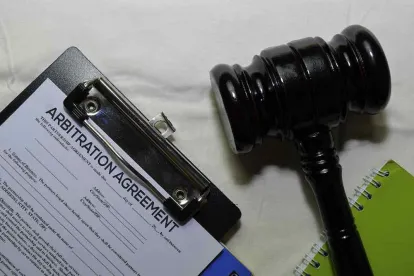On Monday, the Supreme Court resolved a circuit split and issued a long-awaited decision holding that broad U.S.-style discovery under 28 U.S.C. § 1782 is not available in private foreign arbitrations. In the past decade, litigants in international arbitrations had been attempting to use section 1782 more frequently to obtain comprehensive discovery that would otherwise typically be unavailable in arbitration abroad. Now the Supreme Court has put an end to that practice.
The Court consolidated two different appeals that each questioned whether section 1782, which authorizes federal district courts to order discovery from U.S. entities for use “in a foreign or international tribunal,” extends to private arbitrations, as opposed to only governmental or quasi-governmental proceedings. For years, federal courts have grappled with this question. The Second, Fifth, and Seventh Circuit Courts of Appeal have held that a “foreign or international tribunal” does not include private international arbitration, while the Fourth and Sixth Circuits disagreed. In a unanimous opinion, the Supreme Court adopted the former view, concluding that private arbitral bodies are not “foreign or international tribunals” within the meaning of section 1782. As a result, parties engaged in private foreign arbitration may no longer seek expansive discovery in the United States under the statute.
In its decision issued June 13, 2022, authored by Justice Amy Coney Barrett, the Court began its analysis with the plain language of section 1782 and reasoned that the term “tribunal” must be read in conjunction with its modifiers “foreign” and “international.” According to the Court, these words indicate that “tribunal” here means an adjudicatory body having governmental authority. The Court also found support in the history and purpose of section 1782, finding that the “animating purpose” was to promote respect for foreign nations and the governmental and intergovernmental bodies they create, as well as to encourage reciprocal assistance. The Court determined that authorizing discovery in foreign or international disputes between wholly private parties would do little to serve that end. The Court further noted that its interpretation aligned with the Federal Arbitration Act, which allows much narrower discovery in domestic private arbitrations than allowed under section 1782.
Although the two cases before the Court presented slightly different fact patterns, both were found to involve “tribunals” that do not fall within the ambit of section 1782.
The first case, Z.F. Automotive U.S. Inc. v. Luxshare Inc., involved a private arbitration in Germany, pursuant to a contract, between a German bank and a Hong Kong limited liability company. The arbitration was conducted under the rules of the German Arbitration Institute (Deutsche Institution für Schiedsgerichtsbarkeit or DIS ), a private dispute-resolution organization. The Court had no difficulty concluding that the adjudicative body was not imbued with governmental authority and section 1782 discovery was not available to the parties given that no government was involved in creating the panel or prescribing the procedures to be used in the arbitration. The general application of German law was not sufficient to render the arbitral panel governmental.
The second case, AlixPartners, LLP, et al. v. The Fund for Protection of Investor’s Rights in Foreign States, presented a trickier question, stemming from an investor-state dispute between a Russian investment fund and the Republic of Lithuania, pursuant to a treaty between Russia and Lithuania, in which the Russian investor had opted for ad hoc arbitration under the UNCITRAL Rules of Arbitration. Despite recognizing that one of the parties was a sovereign, and that the option to arbitrate arose from an international treaty, the Court nevertheless held that neither fact is dispositive “because Russia and Lithuania are free to structure investor-state dispute resolution as they see fit.” In choosing ad hoc arbitration (as opposed to other forms of state-sponsored dispute resolution available to the parties), the Court found that the parties had agreed to a dispute resolution process that was not imbued with governmental authority. As a result, the panel was found to be “materially indistinguishable” from the Z.F. Automotive panel.
The Court was careful to point out, however, that investor-state arbitration could, in different forms, fall within Section 1782. As stated by the Court, “[n]one of this forecloses the possibility that sovereigns might imbue an ad hoc arbitration panel with official authority. Governmental and intergovernmental bodies may take many forms, and we do not attempt to prescribe how they should be structured.”
Significantly, the Court’s decision overturns years of precedent in the Fourth and Sixth Circuit, and renders section 1782 far less useful in international commercial arbitrations, most of which will now fall outside the definition of a “foreign or international tribunal.” Going forward, the scope of discovery in private international arbitration will be left to the parties’ contractual agreement, the extent to which discovery is permitted by arbitral panels overseeing disputes, and the local courts that may have authority to provide ancillary relief to the parties. As a result, parties entering into international arbitration agreements, including parties doing business with foreign states or state-owned entities, should pay particular attention not only to the content of the arbitration agreement itself and available choices under applicable treaties, but also the scope of discovery included within that arbitration provision and the powers of the arbitral tribunal they choose.







 />i
/>i

